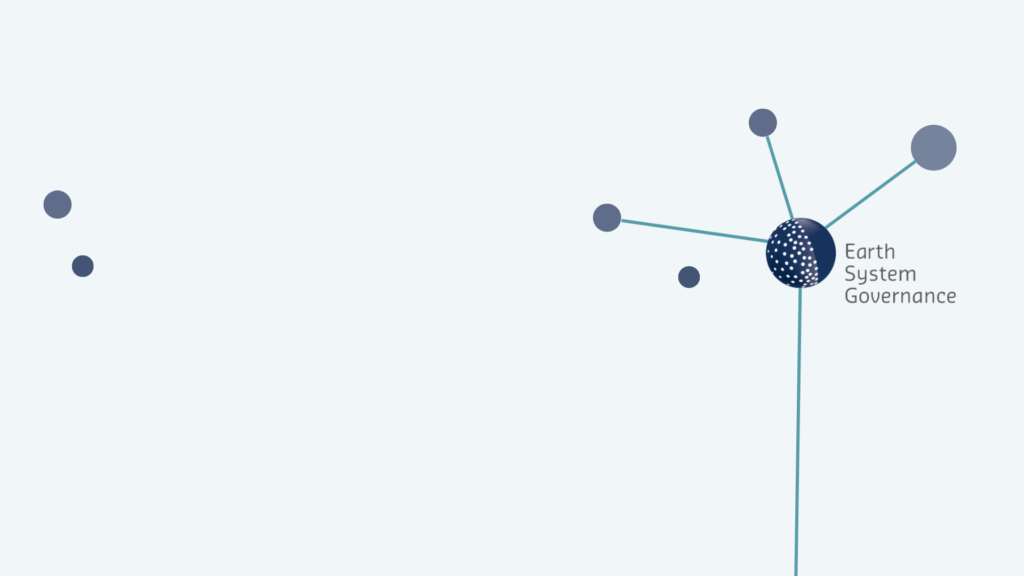Allocation & Access in a Warming and Increasingly Unequal World
Lund University, Sweden, 9-11 October 2017
We invite you to submit abstracts for the Lund Conference on Earth System Governance to be held 9-11 October 2017 in Lund, Sweden.
Download the Call for Papers (pdf)
Key Dates
- Deadline for paper abstracts:
15 March 2017extended deadline: 20 March! - Notification of acceptance: 15 April 2017
- Full papers due: 20 September 2017
- Conference dates: 9-11 October 2017
The conference is part of the global series organized by the Earth System Governance Project. The first Earth System Governance conference was held in Amsterdam in December 2009, followed by Fort Collins (2011), Lund (2012), Tokyo (2013), Norwich (2014), Canberra (2015), and Nairobi (2016). The 2017 conference will take place in Lund, Sweden. The Lund Conference on Earth System Governance is hosted by Lund University and jointly organized by the Lund University Centre for Sustainability Studies (LUCSUS) and the Earth System Governance Project.
Conference Theme
The 2017 Lund Conference on Earth System Governance will address the overarching theme of ‘Allocation and Access in a Warming and Increasingly Unequal World’. This theme acknowledges the multiple crises faced across the world and the uneven distribution of their impacts. A recent report from Oxfam suggests that the richest 1% of the world’s population now has as much wealth as the rest of the other 99% combined. Similarly, climate change and the challenges of mitigation and adaptation are driving further inequalities across the world. In addition, climate change implies an unprecedented intergenerational dimension because of the long lags between emissions, on the one hand, and climate change impacts on the other. However, inequality is far more complex than simply wealth distribution and climate change impacts. Earth system governance must address the entire spectrum of environmental, social and political inequalities.
This leads to the fundamental questions of ‘who gets what, when, where and how’. Different disciplines refer to this challenge differently: lawyers speak of equity, economists of distribution, resource analysts of access, political scientists of fairness, and sociologists of social justice. In earth system governance research, we refer to this as the analytical problems of ‘allocation and access’. In this line of inquiry, we are particularly interested in outcomes, pathways and reallocation in governance. Given the clear impetus for a drastic change in earth system governance in the coming decades and the key challenges faced by many countries politically, socially and environmentally, matters of allocation and access will continue to be crucial questions in the coming decades.
Conference Streams
The conference theme ‘Allocation and Access in a Warming and Increasingly Unequal World’ will be addressed in five thematic streams:
- Environmental justice in earth system governance
- Conceptual understandings and progress
- Science and activism
- Theory and methodology
- Earth system governance in turbulent times
Stream 1: Environmental justice in earth system governance
We understand that governance structures and decisions affect the allocation of, and access to, environmental benefits and burdens. Impacts of global environmental change are experienced differently at the local level and are neither borne nor distributed equally within groups in society. Environmental quality has become closely tied to human equality through environmental justice. Environmental injustices pose significant governance challenges at the international, national and local levels and ultimately lead to widespread inequalities in society and across generations. In this stream, we invite contributions that address the procedural and distributional aspects of earth system governance. How does earth system governance across scales affect allocation and access of environmental benefits and burdens? Who is accountable for environmental justice and at what levels? What constitutes a just distribution of collective goods in a democratic society?
Stream 2: Conceptual understandings and progress
The 2017 conference will continue the discussion of our 2016 Nairobi conference on inequality and will now focus on conceptual understandings and progress on inequality in allocation and access. Inequality has many dimensions that range from procedural access and democratic aspects of legitimacy, transparency and accountability to consequences like distributive injustice or imbalances of environmental, social and economic outcomes. In this stream we return to some of the foundational questions of the Earth System Governance Science Plan: What is the relevance of questions of allocation and access to earth system governance? How can we reach agreement on interdisciplinary conceptualizations and definitions of allocation and access? What are the normative issues at stake in the relationship between environmental sustainability and social justice in earth system governance? What (overarching) principles underlie governance of allocation and access? How can allocation and access be reconciled with governance effectiveness?
Stream 3: Science and activism
An exciting new focus of the 2017 conference is to draw attention to the bifurcation between science and activism. In the era of ‘alternative facts’ and post-truth politics, arguably science has a more active role to play in engaging with political, social and environmental reforms. Social movements are emerging as a global force for social change and democratization, and the role of research and researchers deserves our attention. This stream invites deliberations on the role of science in politics. What is the role of science as such and the individual scientist in civic engagement and collective action? What are the strategies for science to engage more meaningfully with activism? Can engagement in activism undermine scientific credibility? What is the professional responsibility we have to use our scientific knowledge in the face of increasing global inequality and rapid environmental change?
Stream 4: Theory and Methodology
Theoretical and methodological pluralism is a part of earth system governance research, drawing from the social sciences as well as interdisciplinary approaches at the interface of social and natural sciences. In the context of an increasingly warming and unequal world, there is a challenge for theory and methodology development to address both sustainability and environmental justice while maintaining scientific quality and rigor. In this stream we seek to create a platform for the earth system governance community to engage in such theoretical and methodological inquiry. What theories are relevant for earth system governance in the current context? What are the most promising and innovative approaches to researching allocation and access across multiple scales of governance?
Stream 5: Earth system governance in turbulent times
With the rapid political, social and environmental changes currently occurring, we have seen new words entering the earth system governance lexicon, including political terms like Brexit, ‘alternative facts’, ‘Trumpism’ or ‘post-factual’, but also new terms stemming from the science community, such as Anthropocene. The shifting landscape of governance opens areas for new research as earth system governance must adapt to turbulent times, recognizing the extraordinary degree of harm that is possible, and that current governance systems might not be fully prepared for. We therefore invite papers that especially address this challenge. For example, what theoretical concepts, frameworks, and methodologies can be used to analyze and understand the current social, political and environmental landscape? In what ways do innovations or changes in governance arrangements produce more or less accountable, adaptive, accessible and equitable processes/outcomes? How is the agency of different actors shaping allocation and access in the Anthropocene?
In addition to these five thematic streams, we also welcome papers relevant to earth system governance in general.
Types of Proposals
Individual papers
We invite submissions of abstracts of 400 words (or less) that address either the main conference theme; one or more of the five conference streams; or any other topic that is relevant to the Earth System Governance Project. Submissions are welcome here.
All abstracts will be anonymized and evaluated in double-blind peer-review by generally five members of our conference review panel.
Full panels
In addition, we invite Panel proposals that address the main conference theme; one or more of the five conference streams; or any other topic relevant to the Earth System Governance Project. Submissions are welcome here.
Panel proposals must include a description of the panel (300 words or less), 4-5 abstracts (each 400 words or less), as well as the name of a chair and a discussant. Please note that all paper abstracts will be evaluated individually in the general double-blind peer-review of the conference, with the possible outcome that only some papers submitted for a panel might eventually be accepted. Only panels with three or more accepted papers will be included in the programme.
Innovative sessions
We also welcome proposals for non-traditional sessions, such as roundtables (which may include policy-makers, academics, or representatives of non-governmental organizations), policy games, book launches, and book clubs (that may discuss recently published academic works in the field). All non-traditional sessions can be proposed directly to the conference organizers by e-mail: ipo@earthsystemgovernance.org. Proposals should include a description of the session (1 page) and a list of participants. Proposals will be reviewed by the conference organizers and members of the local advisory committee.
In addition, the conference will provide space for side-events or back-to-back meetings of Task Forces, Affiliated Projects, or other relevant meetings.
Additional Information
Please note that while there is no limit on the number of submissions, individuals will only be permitted to present, at a maximum, 2 papers.
The organizers are undertaking all efforts to secure travel support for participants who are based at institutions in developing countries. To the extent that travel funds are available, they will be disbursed on merit basis according to the relative ranking of the abstract. Acceptance of a paper for presentation does not guarantee travel support.
Additional information and answers to frequently asked questions can be found on the conference website at earthsystemgovernance.org/lund2017
Conference Chair
Vasna Ramasar (Lund University Centre for Sustainability Studies)


